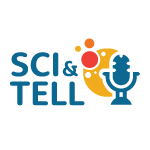Home

Sci & Tell is an audio/visual initiative that highlights first-person accounts, straight from scientists. Listen below to our first episodes of this season, sponsored by NASA, and be on the lookout for more content like drawings, photos, biographies, and more!
Latest Episodes
Priya Nanjappa
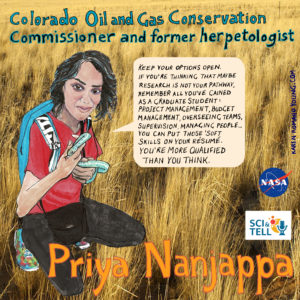
Priya Nanjappa didn’t really have a career plan- she just followed her interests and was open to trying new things. That’s what led her to her current position as a commissioner for the Colorado Oil and Gas Conservation Commission, where she helps implement laws that govern oil and gas development.
Paula Buchanan
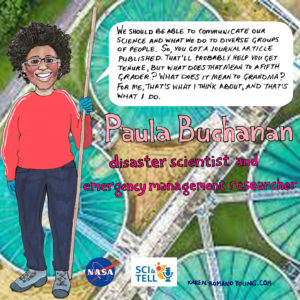
Paula Buchanan is a disaster scientist and an emergency management researcher. Her job is to help effectively communicate the science of emergencies and natural disasters so they can empower themselves to do something- for Paula, there is no point to science if it isn’t benefitting others.
Dante Lauretta
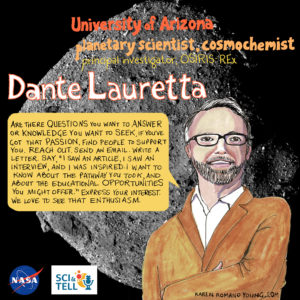
Dante Lauretta, Regents’ Professor of Planetary Science and the principal investigator for NASA’s OSIRIS-REx asteroid sample return mission, has been working on bringing back samples from Asteroid Bennu since 2004- and he still has two more years before he might be able to touch them.
Wendy Bohon
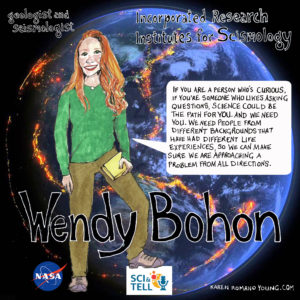
Wendy Bohon majored in theatre in college and moved out to LA to become an actor after graduation. So how did she end up becoming an earthquake geologist and the Senior Science Communication Specialist for the Incorporated Research Institutions for Seismology?
Saleh Ahmed
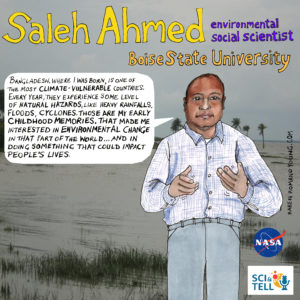
Saleh Ahmed is probably the only researcher who’s working in both Bangladesh and the Intermountain West. And as a professor in Environmental Studies, Global Studies, and Public Policy at Boise State University, his research in climate change is particularly urgent. We talked to Saleh about how growing up in Coastal Bangladesh influences his work, how the extent of urgency can only truly be felt by those vulnerable enough to experience it, and how an advertisement on a coconut tree in the middle of the ocean is relevant to his work.
John Mather
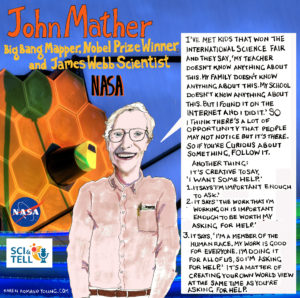
Nobel Prize Winner John Mather has an exciting year ahead of him- he's the senior scientist for the James Webb Space Telescope, the planned successor of the Hubble Space Telescope, which is scheduled to be launched this October. We talk to John about dealing with sudden fame after winning the Nobel, the importance of every single member on a team, and how he'll still be writing scientific papers when he's 100 years old.
Prosanta Chakrabarty
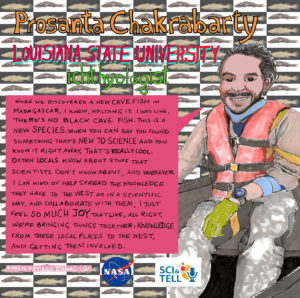
As much as Prosanta Chakrabarty loves his job as an ichthyology professor at LSU, his favorite part of the job is making human connections while doing fieldwork around the world. We talked to Prosanta about knowing he wanted to be a zoologist from a young age, discovering new fish around the world, and partying in the middle of the Amazon River.
Ed Weiler
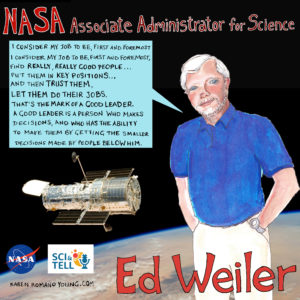
If you think of any NASA project from the last 30 years, chances are Ed Weiler, former Associate Administrator of Science, worked on it. We were lucky enough to talk to him on Sci & Tell, where he shared some fascinating stories about working on everything from the Hubble Telescope to the Mars program.
Mónica Feliú-Mójer
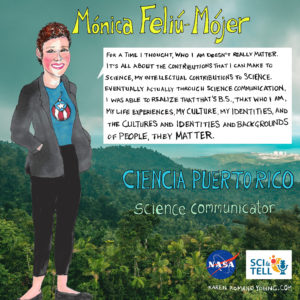
A big part of Mónica Feliú-Mójer’s life mission is to help use science communication as a tool for equity and inclusion. We talked to her about the "scientists without a title" she grew up around in rural Puerto Rico, work-life integration (not work-life balance), and how your cultures and identities absolutely matter in science, despite common belief.
Melissa Scruggs
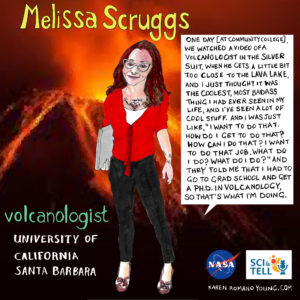
While many of us have anything but "typical" paths through science, few have taken as many unexpected turns as Melissa's.
Sharmila Bhattacharya
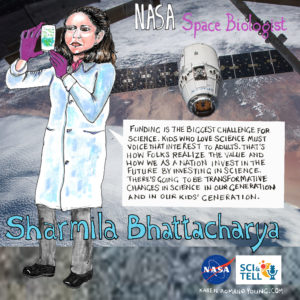
If Sharmila wasn't Program Scientist for Space Biology at NASA Headquarters, perhaps she would've been a theater actress. And while her contributions on stage would likely be legendary, we're happy to have her at NASA learning about how space affects (human and other) biology.
Karen St. Germain
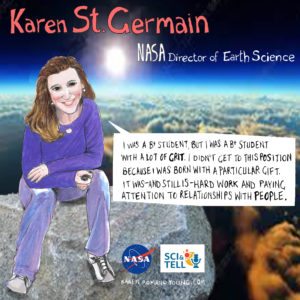
How does one go from being a B+ student who got dressed down by her 8th grade softball coach to the Division Director of the Earth Science Division at NASA? Find out from our inaugural interview with Karen.
